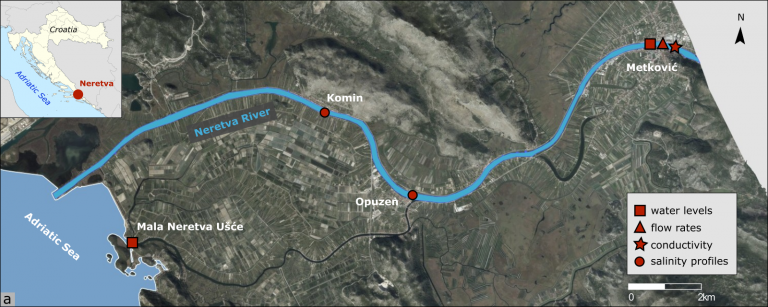
Estuaries are transitional areas between river and marine environments. Understanding the estuarine dynamics is important for various water management issues, such as predicting floods and droughts, assessing impacts of sea level rise, planning freshwater intake for irrigation, and managing sediment transport. One of the key requirements for understanding and predicting the estuarine dynamics is to have reliable river discharge data. Current approaches for estimating discharges in tidally affected river reaches have limitations and new concepts and computational methods are needed. Therefore, the main objective of this research is to develop a suitable computational method for estimating river discharges in highly stratified estuaries from field measurements. The pilot area will be the Neretva River estuary, the largest river in the eastern part of the Adriatic Basin. The methodology consists of data processing, signal analysis, numerical modelling, and development of a hybrid computational approach, which combines physically based models with machine learning methods. The project team will be established at the University of Rijeka, Faculty of Civil Engineering, and it will consist of experts in hydrology, coastal engineering, signal processing and machine learning. The team will be led by Nino Krvavica, an expert in estuarine hydrodynamics. The expected result and main scientific contribution from this research will be a methodology for estimating river discharges in highly stratified estuaries from known water stages and sea levels. Once the method is thoroughly tested and validated in the Neretva River, it could be applied to other coastal rivers in Croatia and implemented as a part of a national hydrological monitoring programme.